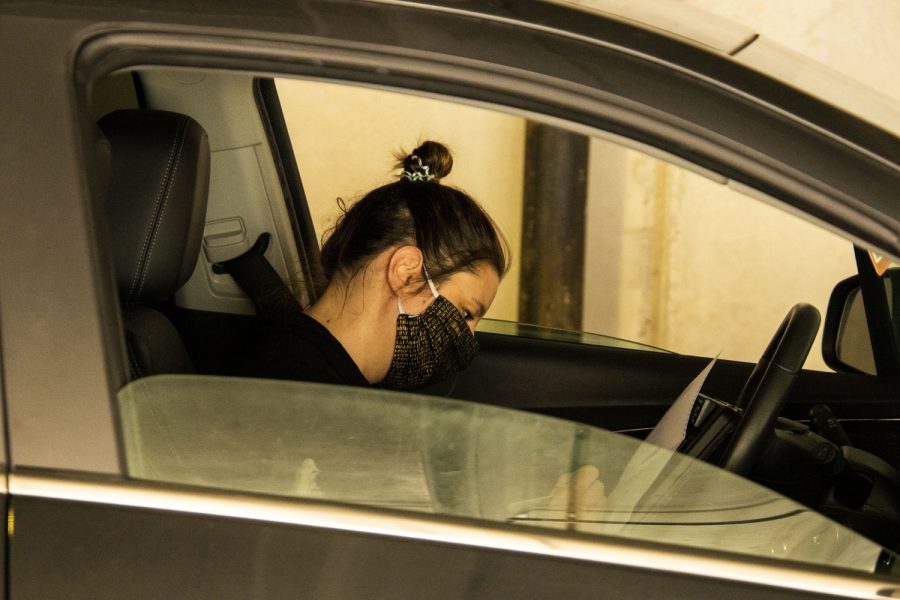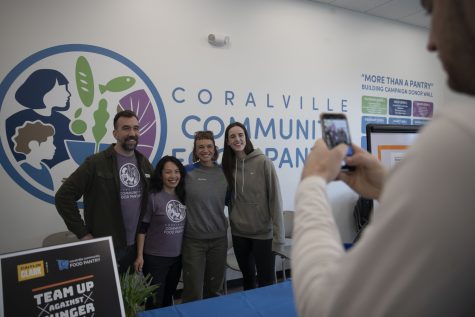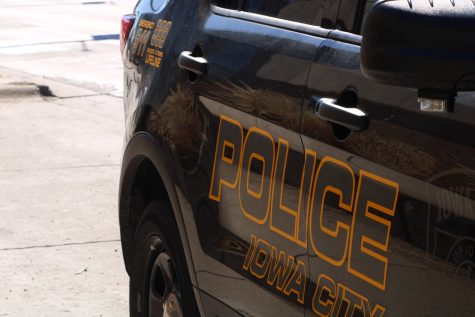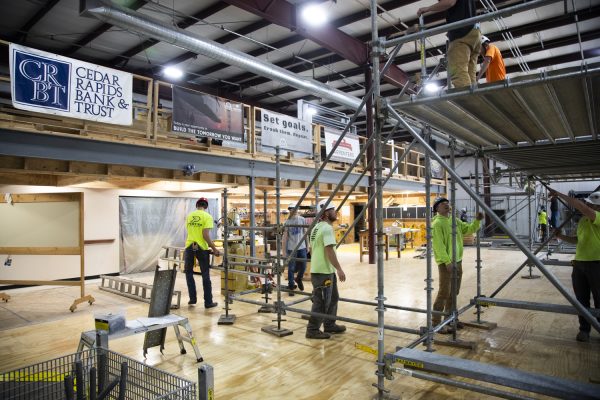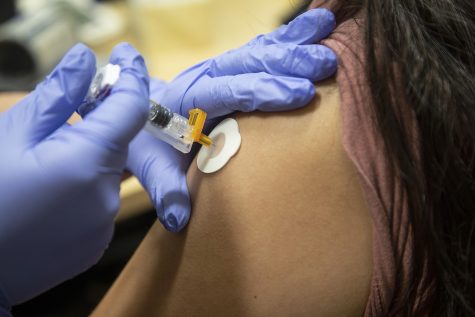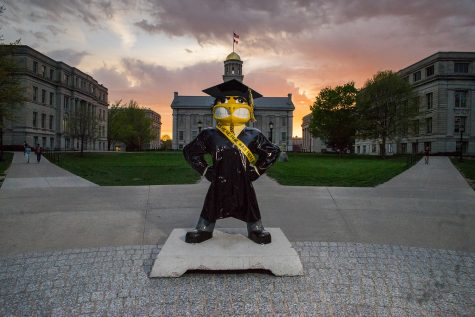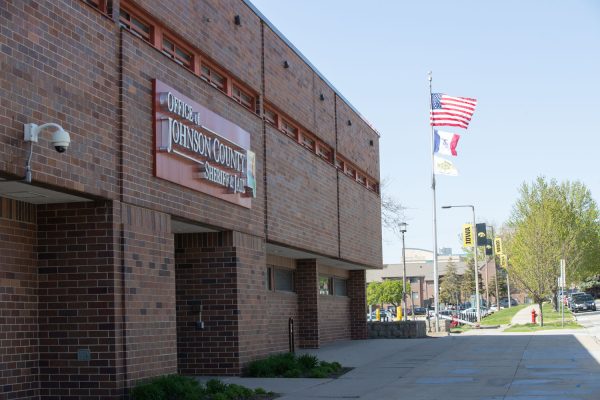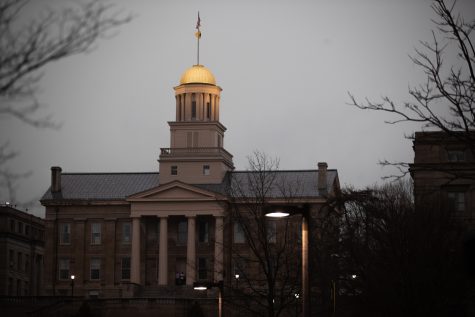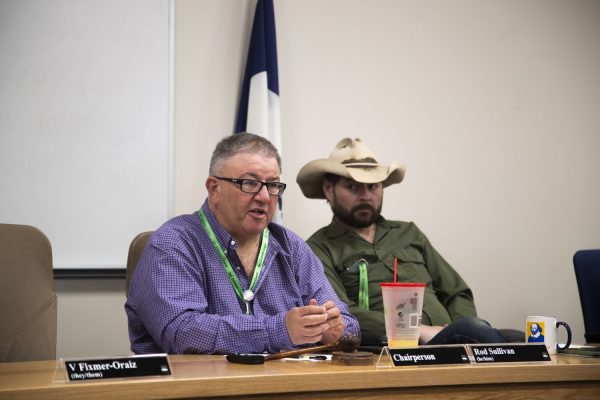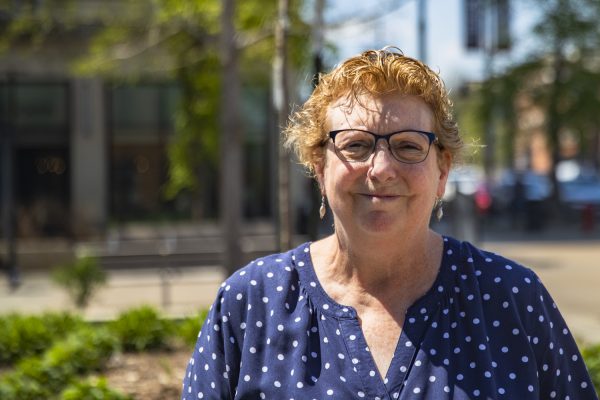A recap of Iowa’s first week of early voting
Oct. 5 marked the start of early voting in Iowa and Johnson County is just one of 99 Iowa counties that started counting ballots. This election year has already seen a record amount of mail-in ballots compared to past years.
Johnson County holds drive-in voting at 913 S. Dubuque St. in Iowa City. Resident Susan Horan goes over the ballot on Tuesday, Oct.6, 2020.
October 11, 2020
Johnson and other area counties are seeing an influx of early voting after the first voters of the 2020 election cast their ballots this week.
In its first week of early voting, Johnson County averaged 700 in-person voters a day and counted over 14,000 ballots, including mail-in, said Johnson County Auditor Travis Weipert. The county offered drive-up voting for the first time this year, so voters could complete and turn in their ballots from their cars.
Early voting in Iowa began Oct. 5, and Weipert said the county is seeing more voters in the first week than he expected.
“I was worried that people would show up and turn away after seeing the long lines,” Weipert said. “But instead it went off without any hitches and each car got through the line quickly and smoothly.”
For the county home to the University of Iowa, John Deeth, Johnson County elections official, said 879 of the 14,389 returned ballots in Johnson County are from voters 25 and younger. It’s not a large share, but Deeth expects that number to surge once an early voting site opens up next week on campus.
“We expect that young voter number to jump a lot the week of the 19th through the 23rd during the IMU satellite site,” Deeth said.
And fewer students are on campus — more than three-quarters of UI undergraduate hours are online, and students have canceled housing contracts in residence halls after the UI extended its refund deadline.
Dubuque County Auditor Denise Dolan said she mailed a record number of absentee ballots. The largest number of early votes Dubuque County had seen previously was 24,000, and this year surpassed that within the first five days of early voting.
RELATED: Early voting in Iowa begins Monday: here’s how you can vote
“Voting this week has been steady with no difficulties,” Dolan said. “With COVID we have some new measures like wiping down booths and plexiglass between people, but I’m pleased everything has gone well.”
Dolan said the rise in mail-in ballots can be attributed to the Iowa Secretary of State sending all active registered voters in Iowa an absentee ballot-request form.
Linn County has so far seen an especially low number of voters in the 18-34 age range, Linn County Auditor Joel Miller said. Only one in 10 voters are in that age range — almost as many voters as in the 80-plus group, he said.
Of the 5,580 ballots Linn County received through mail-in or in-person voting, Miller said only 578 of those ballots are from voters ages 18-34.
Miller said most so far are from voters in the 35-50 age group.
The low number of young voters is concerning in Linn County, Miller said. He said he’s disappointed because it appears as though younger people in Linn County are engaged in politics but not participating — at least not yet.
“I know that younger people seem to procrastinate in general,” Miller said. “Many wait until the last minute and when you wait until the last minute – especially when you aren’t registered yet – you have to go through more steps, making the process more tedious.”
Eva Sileo, a 22-year-old voter in Johnson County, said she decided to vote early and in-person this year because she was uncertain if she would be able to make it to the polls on Election Day wanted assurance that her ballot would make to the auditor’s office.
“There was a bit of a line, but overall I have been really impressed with our county auditor who built a really effective system for this,” Sileo said. “The drive up is a great way to vote in-person without risking exposure and it has expanded access for many voters like me.”



